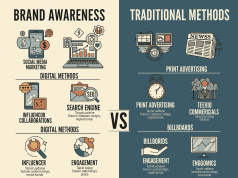In the fast-paced world of marketing, staying ahead of the curve is essential. As technology continues to evolve, so do the strategies that companies employ to reach their target audiences. Among the most significant advancements in recent years is the emergence of Ad Campaign Management Software (ACMS). This innovative tool is transforming the landscape of advertising, enabling brands to optimize their campaigns with unprecedented precision and efficiency.
The Rise of Ad Campaign Management Software
Advertising has always been a multifaceted industry, dependent on creative strategies and data-driven decision-making. In the past, managing campaigns often involved manual processes that were time-consuming and prone to errors. With the advent of ACMS, marketers now have access to powerful platforms that streamline campaign management, from conception to execution.
Key Features of Ad Campaign Management Software
Automated Monitoring and Reporting: ACMS enables marketers to track campaign performance in real-time, automatically generating reports that highlight key metrics such as reach, engagement, and conversion rates. This real-time feedback loop allows for swift adjustments, ensuring that campaigns remain effective.
Data-Driven Targeting: Utilizing advanced algorithms and machine learning, ACMS can analyze vast amounts of data to identify optimal target audiences. This level of precision is critical in a marketplace saturated with information, allowing brands to reach the right consumers with tailored messages.
Multi-Channel Management: In today’s digital landscape, a single campaign may span multiple platforms—from social media and search engines to email and display advertising. ACMS provides a centralized dashboard for managing all these channels effectively, enabling cohesive messaging and better budget allocation.
Creative Optimization: A/B testing is made simple with ACMS, allowing marketers to experiment with different creatives, headlines, and calls-to-action. This experimentation leads to insights that can significantly enhance the performance of advertising content.
- Budget Management: Marketers can allocate their budgets more efficiently by analyzing the performance of different channels and adjusting spending in real time. This ensures that resources are directed towards the highest-performing strategies.
Benefits of Ad Campaign Management Software
Enhanced Efficiency: By automating repetitive tasks and simplifying complex processes, ACMS frees up valuable time for marketing teams. This allows them to focus more on creative and strategic initiatives rather than administrative tasks.
Improved Collaboration: ACMS facilitates better communication and collaboration among team members. With all relevant data and tools in one place, different departments can align their efforts more effectively, leading to unified campaigns.
Scalability: Whether a company is running a few small campaigns or managing multiple large-scale initiatives, ACMS can scale accordingly. This flexibility makes it suitable for businesses of all sizes, from startups to Fortune 500 companies.
- Higher Return on Investment (ROI): By optimizing targeting and budget allocation, ACMS contributes to improving the overall ROI of advertising campaigns. Organizations can achieve better results without necessarily increasing their budgets.
The Future of Advertising with ACMS
As the digital landscape continues to evolve, the role of Ad Campaign Management Software will only become more integral. With advancements in artificial intelligence and machine learning, future ACMS solutions will likely offer even greater insights and automation capabilities.
Moreover, as consumer behavior becomes increasingly data-driven, the need for precision targeting and personalized experiences will drive the continued demand for sophisticated campaign management tools. Companies that leverage these technologies will be better positioned to adapt to changing market dynamics, ensuring their message resonates with the right audience at the right time.
Conclusion
Ad Campaign Management Software is revolutionizing the advertising industry, transforming the way companies plan, execute, and analyze their marketing efforts. With features that enhance efficiency, collaboration, and data-driven decision-making, these tools are not just optional; they are essential for modern marketers looking to thrive in a competitive landscape. As technology advances and consumer expectations evolve, embracing ACMS will be key for brands aiming to achieve optimal results in their advertising endeavors. The future of advertising is here, and it’s powered by intelligent software solutions.









